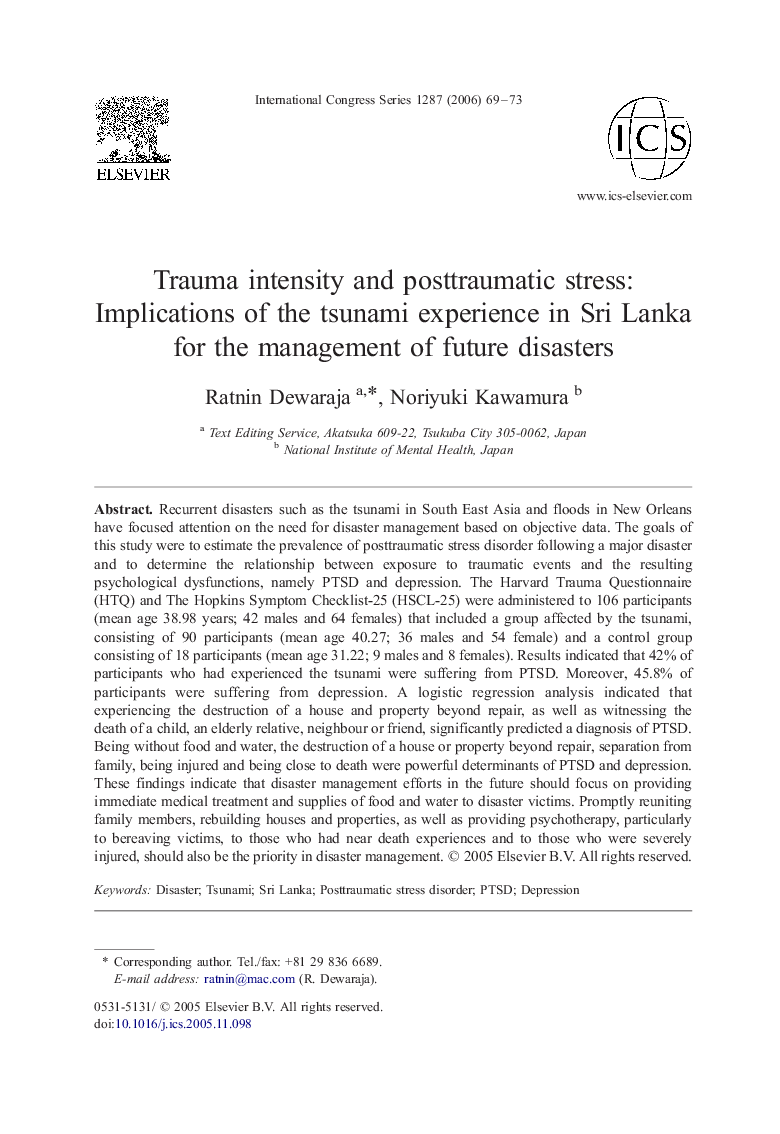| کد مقاله | کد نشریه | سال انتشار | مقاله انگلیسی | نسخه تمام متن |
|---|---|---|---|---|
| 2577210 | 1561370 | 2006 | 5 صفحه PDF | دانلود رایگان |

Recurrent disasters such as the tsunami in South East Asia and floods in New Orleans have focused attention on the need for disaster management based on objective data. The goals of this study were to estimate the prevalence of posttraumatic stress disorder following a major disaster and to determine the relationship between exposure to traumatic events and the resulting psychological dysfunctions, namely PTSD and depression. The Harvard Trauma Questionnaire (HTQ) and The Hopkins Symptom Checklist-25 (HSCL-25) were administered to 106 participants (mean age 38.98 years; 42 males and 64 females) that included a group affected by the tsunami, consisting of 90 participants (mean age 40.27; 36 males and 54 female) and a control group consisting of 18 participants (mean age 31.22; 9 males and 8 females). Results indicated that 42% of participants who had experienced the tsunami were suffering from PTSD. Moreover, 45.8% of participants were suffering from depression. A logistic regression analysis indicated that experiencing the destruction of a house and property beyond repair, as well as witnessing the death of a child, an elderly relative, neighbour or friend, significantly predicted a diagnosis of PTSD. Being without food and water, the destruction of a house or property beyond repair, separation from family, being injured and being close to death were powerful determinants of PTSD and depression. These findings indicate that disaster management efforts in the future should focus on providing immediate medical treatment and supplies of food and water to disaster victims. Promptly reuniting family members, rebuilding houses and properties, as well as providing psychotherapy, particularly to bereaving victims, to those who had near death experiences and to those who were severely injured, should also be the priority in disaster management.
Journal: International Congress Series - Volume 1287, April 2006, Pages 69–73